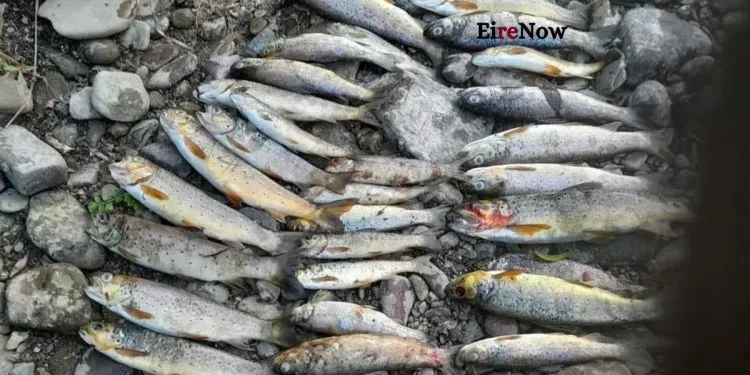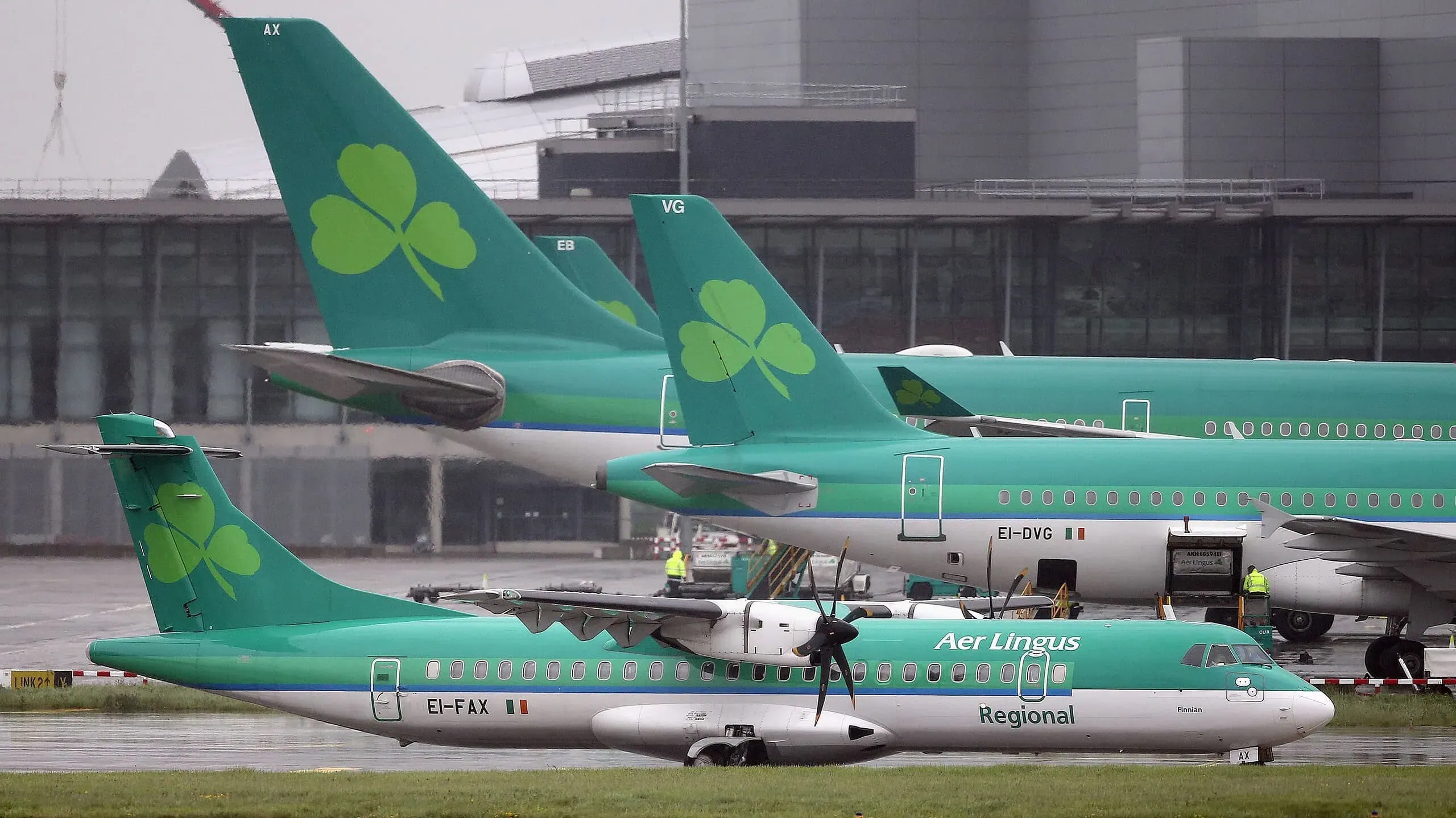A devastating fish kill on the River Blackwater in Cork is now feared to be the largest in Ireland’s history, with local anglers warning that the environmental damage could take generations to repair.
The incident, first reported on 12 August by Inland Fisheries Ireland (IFI), was initially believed to have affected an 8km stretch of the river between Mallow and Roskeen Bridge in Lombardstown. Early estimates suggested around 1,000 brown trout had died, possibly due to a fungal outbreak.
However, the scale of destruction has since grown dramatically. John Ruby, chairman of the Mallow Trout Anglers Club, now estimates that up to 20,000 fish have been killed along a 25–30km section of the Blackwater.
“We’re looking at 20,000 fish dead – this is very serious, it’s one hundred times more serious than it looked at the beginning of last week,” Mr Ruby told The Echo.
“At the moment, we’ll be lucky to hold on to any species in the River Blackwater because they’ve been decimated completely.”
Cause of Fish Kill Remains Unclear
While IFI initially suggested that a fungal infection could be responsible, Mr Ruby stressed that other factors are now under investigation.
“The possibility of a fungal infection has been pushed on the long finger as a secondary cause – it’s not the primary cause,” he said.
Samples have been taken by the Marine Institute, which is carrying out toxicology testing. Results are expected in the coming weeks, but for now the exact cause remains unknown.
Long-Term Ecological Damage Predicted
The River Blackwater is one of Ireland’s most important salmon and trout rivers, supporting both local biodiversity and recreational angling. Mr Ruby warned that the current damage could take decades to repair.
“It’s not going to be in our lifetime that the river is fully restored. It’ll be the next generation before they can see an improvement,” he said.
“It’s probably the biggest fish kill in the history of the country.”
The scale of the kill has left large stretches of the river resembling what Mr Ruby described as a “sanitised” waterway, stripped of its natural stock.
Economic Impact on Local Communities
Beyond the environmental disaster, the incident is expected to have serious knock-on effects for the local economy, which relies heavily on angling tourism.
“This is going to have a huge effect on the club, fishing tourism, and B&Bs and hotels,” Mr Ruby explained. “It will be detrimental to that side of things.”
Tourism linked to salmon and trout fishing contributes millions annually to Ireland’s rural economy. A collapse in stocks on the Blackwater could therefore hit local businesses hard, from tackle shops to guesthouses.
Wider Concerns About Ireland’s Rivers
The incident comes amid growing concern over the health of Irish rivers. Recent government reports (link) have highlighted pressures from pollution, climate change, and habitat loss, with many rivers failing to meet EU Water Framework Directive standards.
Environmental groups have repeatedly warned that Ireland’s freshwater ecosystems are under strain, and the Blackwater case could be a stark reminder of how quickly a river system can collapse.
For now, local anglers and conservationists are waiting anxiously for the toxicology results. But many fear that, regardless of the cause, the damage may already be irreversible in the short term.







